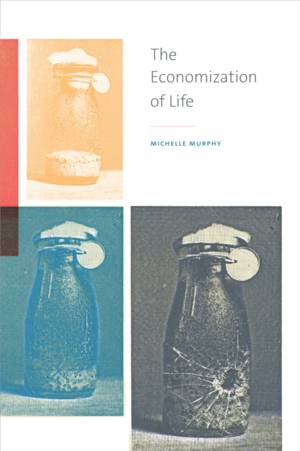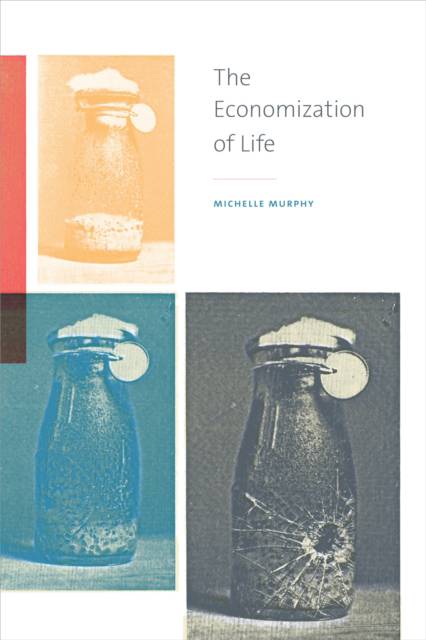
Door een staking bij bpost kan je online bestelling op dit moment iets langer onderweg zijn dan voorzien. Dringend iets nodig? Onze winkels ontvangen jou met open armen!
- Afhalen na 1 uur in een winkel met voorraad
- Gratis thuislevering in België vanaf € 30
- Ruim aanbod met 7 miljoen producten
Door een staking bij bpost kan je online bestelling op dit moment iets langer onderweg zijn dan voorzien. Dringend iets nodig? Onze winkels ontvangen jou met open armen!
- Afhalen na 1 uur in een winkel met voorraad
- Gratis thuislevering in België vanaf € 30
- Ruim aanbod met 7 miljoen producten
Zoeken
Omschrijving
What is a life worth? In the wake of eugenics, new quantitative racist practices that valued life for the sake of economic futures flourished. In The Economization of Life, M. Murphy provocatively describes the twentieth-century rise of infrastructures of calculation and experiment aimed at governing population for the sake of national economy, pinpointing the spread of a potent biopolitical logic: some must not be born so that others might live more prosperously. Resituating the history of postcolonial neoliberal technique in expert circuits between the United States and Bangladesh, Murphy traces the methods and imaginaries through which family planning calculated lives not worth living, lives not worth saving, and lives not worth being born. The resulting archive of thick data transmuted into financialized "Invest in a Girl" campaigns that reframed survival as a question of human capital. The book challenges readers to reject the economy as our collective container and to refuse population as a term of reproductive justice.
Specificaties
Betrokkenen
- Auteur(s):
- Uitgeverij:
Inhoud
- Aantal bladzijden:
- 232
- Taal:
- Engels
Eigenschappen
- Productcode (EAN):
- 9780822363347
- Verschijningsdatum:
- 12/05/2017
- Uitvoering:
- Hardcover
- Formaat:
- Genaaid
- Afmetingen:
- 157 mm x 234 mm
- Gewicht:
- 439 g

Alleen bij Standaard Boekhandel
+ 331 punten op je klantenkaart van Standaard Boekhandel
Beoordelingen
We publiceren alleen reviews die voldoen aan de voorwaarden voor reviews. Bekijk onze voorwaarden voor reviews.











